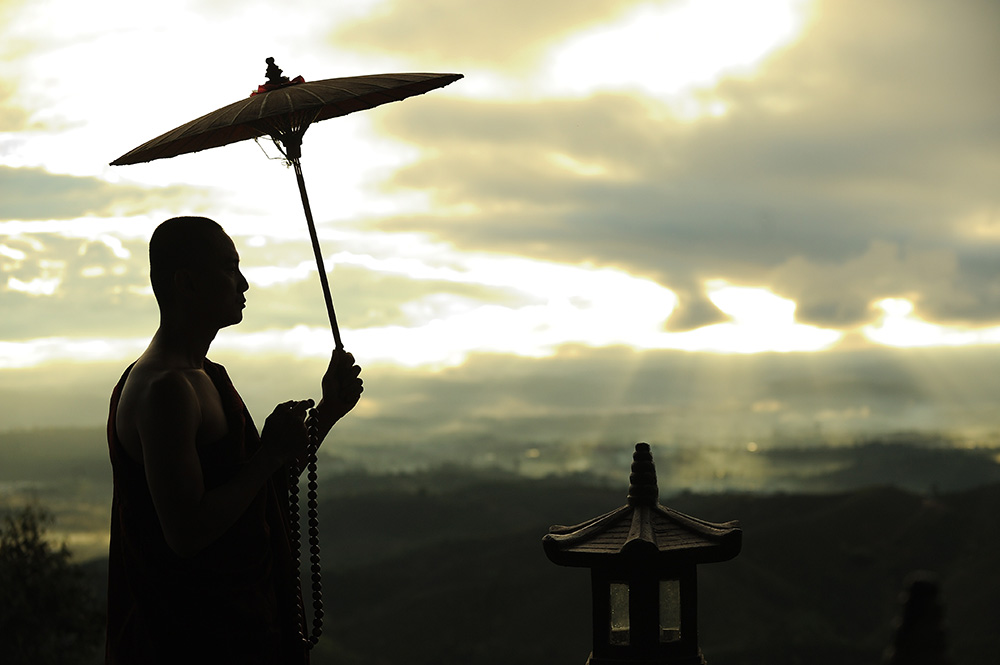 (Photo source: Pexels)
(Photo source: Pexels)
On 13 December 2011, Mr and Mrs General Piyoros Preeyanont from Thailand were welcomed and received by Brother Gan Qing-yi, Brother Lai Jing-yi and Sister Nadia Lin to meet Master Cheng Yen, with Brother Zhang Zhuo-you as the interpreter. Upon meeting Master Cheng Yen, Piyoros Preeyanont asked about the difference between Mahayana Buddhism in Taiwan and Hinayana Buddhism in Thailand.
The Master answered:
Buddhism in Thailand retains the original state and Sanghahood since the time of Buddha. When Buddha came up with the practice of requesting alms, it was due to the existing social background and needs at that time. Apart from allowing the Sangha to spread the Dharma by seeking alms, it also sought to subdue the egoistic nature of the monks who were from a royal family so they could better understand the meaning of “all sentient beings are equal”.
As the number of Sangha progressively increased, the Sangha community urgently required a location for them to rest and cultivate spiritually. In view of these needs, Kings and Elders offered to build a Vihara for Buddha and the Sangha community, which was an act of infinite merit. In modern society today, the Sangha community still requires a place to cultivate and spread Dharma. However, unlike during Buddha’s time, building a grand Vihara and making offerings to the Sangha were not the only ways to accumulate boundless merits. Allowing more people to know the Dharma and letting them benefit from it is another way to accumulate merits.
In terms of spiritual practice, my first encounter with Buddhism was in the monastery. I was deeply touched by the Dharma. However, I could not accept the daily practice in the monastery to be predominantly reciting the sutra, seeking repentance and accepting offerings from the public. The sutra consists of the words and wisdom of Buddha. Therefore, merely reciting it without fully understanding the meanings of the sutra defeats its purpose. On top of that, from the understanding I derived from Buddha’s teaching, it was to benefit and treat all sentient beings equally, regardless of their social status. I fully agree with that. Furthermore, I refused to let my limited lifetime be bounded by fame, fortune, and family commitment. Therefore, I chose to be ordained as a nun and live my Sanghahood based on how I believe Sanghahood should be.
When I was newly ordained as a nun, I explored ways to integrate Buddha’s teaching into practice. The first sutra I came across was the Lotus Sutra, whereas the sutra I studied in-depth was the Sutra of Infinite Meanings. Both the Sutras talk about the Bodhisattva’s path. Hence, having been ordained as a Sangha, I should not live my life in vain. Sentient beings are already suffering immensely, and I could not bring myself to benefit sentient beings until after I gain enlightenment. Moreover, when sentient beings are gravely tormented by hunger and poverty, words without actions provide slight improvement to the situation.
As such, I decided to do relief work. Even though that meant that I would have less time to study Buddhism in-depth, I realised that every human being I came into contact with was akin to a “walking sutra”. I was able to discover and witness the Buddha’s teaching and wisdom through every encounter, such as the innate Buddha nature in every sentient being. Their innate Buddha nature was merely obscured by afflictions. I also believe kindness resides within the heart of every human; they merely require Dharma as a tool to purify the heart of its afflictions. Therefore, volunteering and charity work become a means to cultivate and practise Dharma. We tried to encourage those who are well-to-do to participate more in charity and educate the needy that they, too, possess the ability to help others. The compassionate heart to help others is universal regardless of one’s financial status. If the wealthy gave alms with arrogance, such alms giving does little benefit to them as their hearts were not purified by Dharma. For example, during the recent flood relief effort in which Tzu Chi participated in Thailand, some Tzu Chi volunteers were mistaken by locals as cleaners sent by the local Government. They were therefore asked to clean the toilet. Despite so, the Tzu Chi volunteers proceeded to clean the toilets joyously. They demonstrated that they had humbled themselves and integrated Buddhism into their lives and practises.
A distinct feature about Tzu Chi volunteers when they engage in charity work is that they have to be grateful and thank the recipient they are helping. Such gratitude stems from the appreciation toward the recipient for “displaying” worldly suffering, which educates the giver to cherish one’s blessing. When the Buddha delivered his first teaching, he spoke about the Four Noble Truths. The first noble truth that he spoke about was the truth of suffering. It would be difficult to truly understand suffering if one only practises and cultivates within the monastery. Only when one walks into the crowd and offers a helping hand would one truly learn and become inspired. From such experience, it will also help to increase one’s wisdom and compassion, making one more devoted to helping those who are suffering.
Translated by Soh Wan Siew
